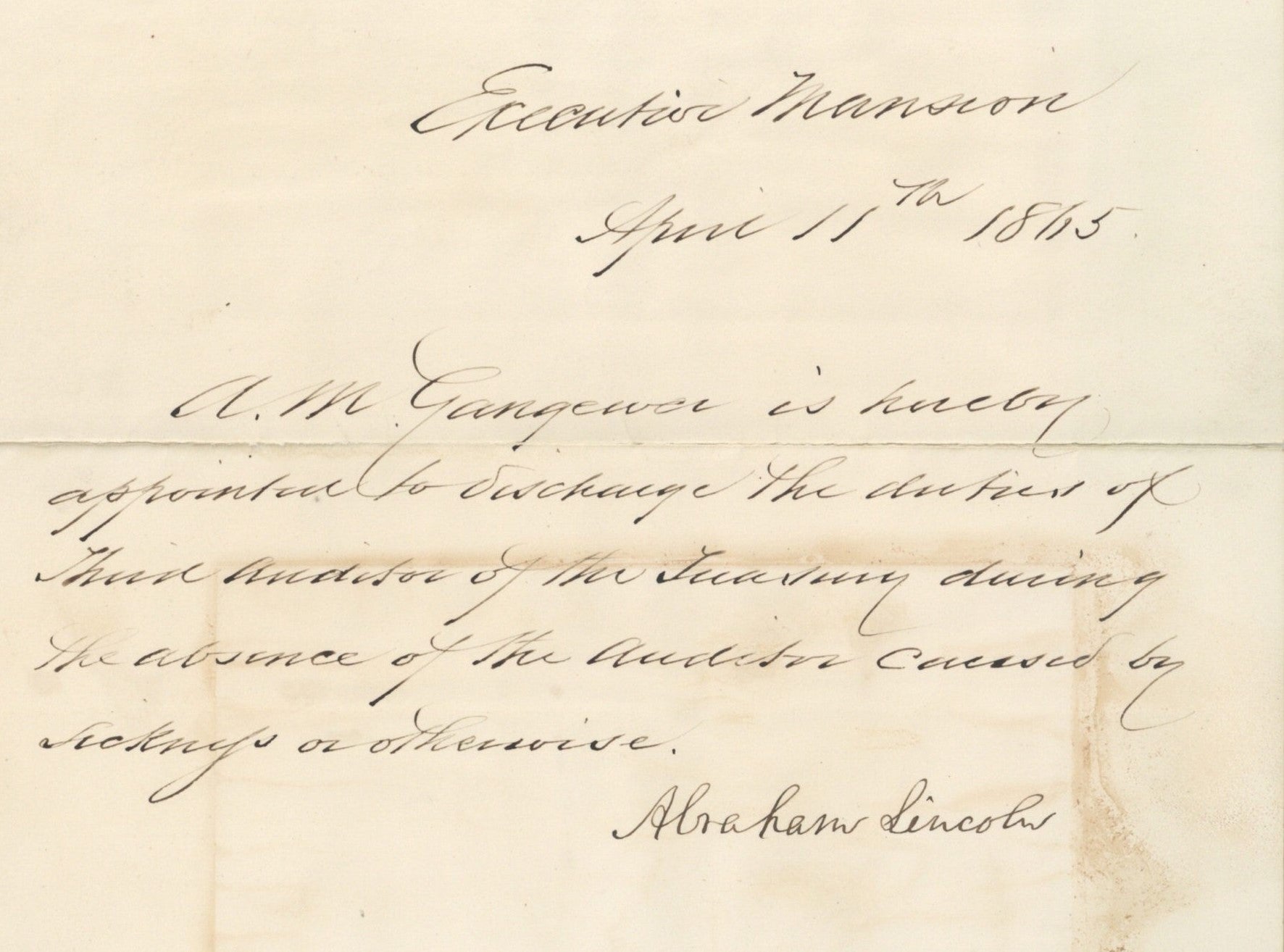On April 11, 1865, just two days after Confederate Army General Robert E. Lee surrendered to Union forces in Virginia, President Abraham Lincoln was immersed in the monumental task of rebuilding the federal government and uniting a nation torn apart by war.
Amidst these efforts, Lincoln appointed a like-minded anti-slavery advocate to a Treasury position, signed various documents, and addressed a crowd of around 3,000 individuals gathered on the White House lawn. In his 10-minute speech, Lincoln spoke optimistically about the upcoming period of reconstruction, emphasizing a sense of gratitude and hope rather than sorrow.
The president hinted at a forthcoming national thanksgiving proclamation, marking a shift from mourning to celebration in the wake of the war’s conclusion.
Notably, a recently unearthed letter dated April 11, 1865, signed by Lincoln appointing Allen M. Gangewere to the role of Third Auditor of the Treasury has surfaced. This significant discovery, found among the belongings of a woman’s late husband, sheds new light on a pivotal moment in history.
Gangewere, a staunch abolitionist and key figure in aiding destitute fugitive slaves, played a crucial role in the anti-slavery movement. His appointment by Lincoln symbolized the president’s commitment to advancing the cause of freedom and equality.
While a copy of Gangewere’s appointment exists in the National Archives, the original document, long thought lost, is now available for purchase through the Raab Collection in Ardmore, Pa., for $45,000.
Nathan Raab, the president of the Raab Collection, emphasized the historical significance and rarity of owning a document signed by Lincoln during the final hours of his life. Such artifacts are typically housed in institutions, making this find a unique opportunity for collectors and history enthusiasts alike.
Raab’s decision to unveil this discovery on President’s Day adds a poignant layer to the story, underscoring the unpredictability of historical events and the enduring legacy of figures like Lincoln.
The appointment of Gangewere, an ardent advocate for the abolition of slavery, reflects Lincoln’s vision for a post-war America guided by principles of equality and justice. This official act, captured in the letter, highlights the president’s commitment to surrounding himself with like-minded individuals who shared his values and beliefs.
Daniel Worthington from the Abraham Lincoln Presidential Library and Museum praised the letter for showcasing Lincoln’s dedication to his duties as both the chief executive and commander in chief. Worthington emphasized the mundane yet essential nature of such administrative tasks during a period of national turmoil.
Moreover, the letter serves as a stark reminder of the tragic events that unfolded shortly after Lincoln’s public address on April 11. John Wilkes Booth’s heinous act of assassination, fueled by his vehement opposition to Lincoln’s progressive views on granting voting rights to Black soldiers, marked a dark turn in American history.
As Lincoln navigated the complexities of post-war reconstruction and attended to governmental matters in his final days, his unwavering commitment to his presidential duties remained steadfast.
In conclusion, the letter appointing Gangewere stands as a poignant testament to Lincoln’s enduring legacy and the pivotal role he played in shaping the course of American history. Its significance lies not only in the historical context it provides but also in the personal connection it offers to one of the nation’s most revered leaders.
